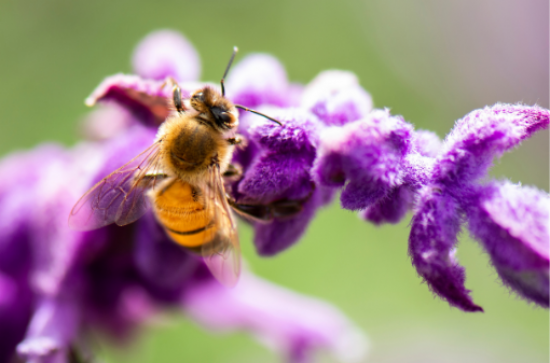
Up to 600 beekeepers from across Ireland are to attend the Annual Summer School of the Federation of Irish Beekeepers’ Associations this weekend at Maynooth University.
The summer school, which takes place on Friday 29th and Saturday 30th, will offer learning experiences on beekeeping for new, competent and advanced participants. The weekend’s events include lectures on bee health and management from Irish and international experts, a honey show and competition, a trade show and exhibits and practical workshops.
A highlight for the weekend will be the Honey Show and Awards ceremony, where judges will appraise honey based on the clarity (if clear) and texture (if granulated) of the honey, aroma, viscosity or density, and taste. There will also be competitions in honey related products such as bees wax, honey cake, sweets, mead, polish and candles.
Notable speakers over the weekend include Dr Mary Coffey from the Department of Agriculture, Food and Marine, who will present an ‘Update from the Honey Bee Health Surveillance Programme’ on the health status of bees in Ireland and risks of imported bees. Dr Noa Simon Delso of BeeLife, a non-profit organisation working to improve conditions for bees and pollinator based in Brussels, will discuss the impact of pesticides and other chemicals on bee life and the strategies that Irish beekeepers should adopt as part of the EU ‘Green Deal’.
The event includes a hands-on training session on bee anatomy and bee disease led by Dr Helen Mooney (Bee Master and lecturer for Diploma in Scientific Studies (Apiculture) Bees & Beekeeping, at NUIG), with Teresa Redmond (beekeeper and Manager of the MU Biology laboratory), alongside MU PhD students, who will act as demonstrators.
Participants will use microscopes to examine the external anatomy of the honey bee as well as learning to identify some of the exocrine glands that produce pheromones - key to colony cohesion and communication. They will also study two diseases that can cause problems to honey bees, which are confirmed only by miscroscope. Participants will use a compound microscope to check bees for Nosema spores whilst dissecting bees to check for Acarine mites.
At MU’s School of Biology, researchers, led by Prof Kevin Kavanagh, are investigating the causes of Colony Collapse Disorder. His team’s work has looked at the impact of treatments for the parasitic mite Varroa destructor on Apis mellifera (European Honeybee) hives and genetic analysis of proteins in A. mellifera workers in summer and winter to provide an insight into their adaptions which may aid in future treatment and disease studies on honeybee colonies.
Commenting on the event, Paul O’ Brien, President of The Federation of Irish Beekeepers’ Associations (FIBKA) said: “FIBKA was founded in 1881 and with over 3,000 beekeepers belonging to over 40 local associations, we are one of Irelands oldest, and largest, voluntary organizations. The Summer School is one of the highlights of our calendar, and enables us to provide support and education to beekeepers to encourage efficient and high standards in beekeeping and honey production. We very much look forward to a successful event at Maynooth University”.
